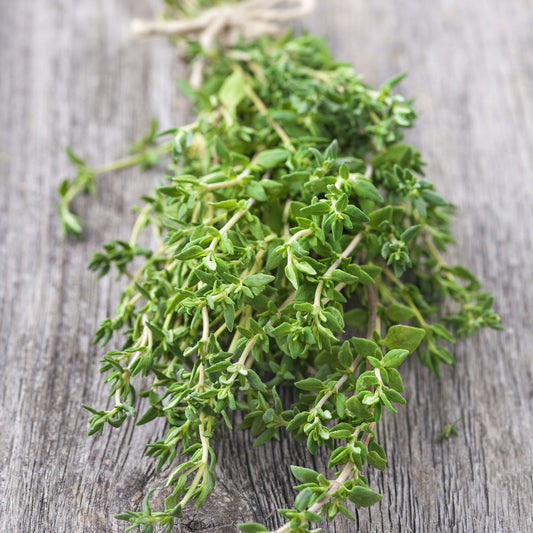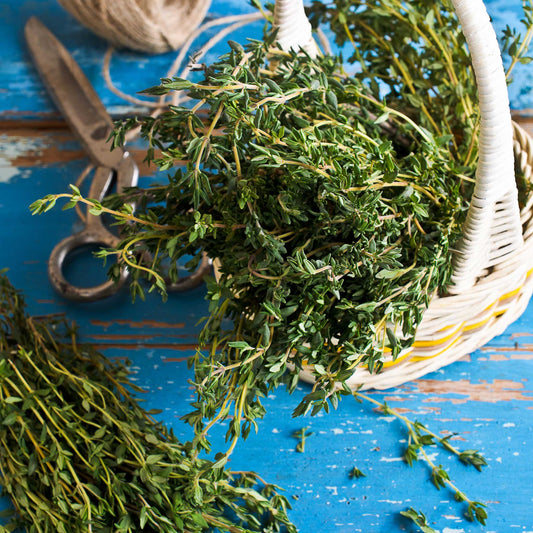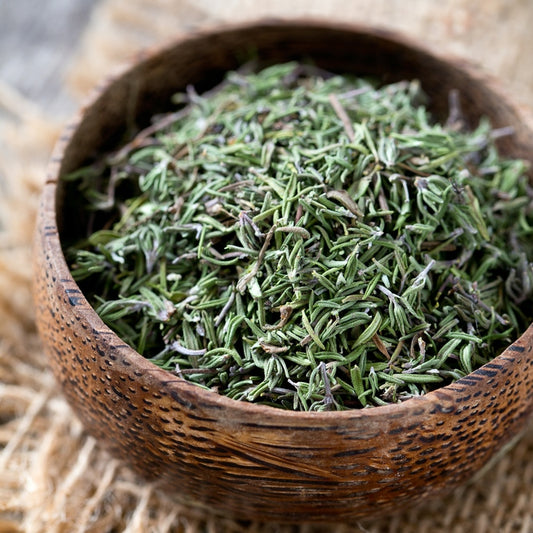-
main-collection-product-grid

Thyme Seeds
Most cherished of all herbs with its bold floral and earthy flavorThyme Seeds
Most cherished of all herbs with its bold floral and earthy flavorRegular price As Low As $5.49Regular priceUnit price per -
main-collection-product-grid

Thyme Seeds (Organic)
Present in most herb gardens, an excellent culinary and aromatic herbSaleThyme Seeds (Organic)
Present in most herb gardens, an excellent culinary and aromatic herbRegular price As Low As $8.99Regular priceUnit price per$73.99Sale price As Low As $8.99Sale -
main-collection-product-grid

Thyme Seeds - Summer
Spicy, pungent flavor; used fresh or driedThyme Seeds - Summer
Spicy, pungent flavor; used fresh or driedRegular price As Low As $6.99Regular priceUnit price per -
main-collection-product-grid

Culinary Herb Holiday Gift Collection
The perfect holiday gift for gardeners. home chefs and anyone who loves fresh ingredientsCulinary Herb Holiday Gift Collection
The perfect holiday gift for gardeners. home chefs and anyone who loves fresh ingredientsRegular price $44.99Regular priceUnit price per
All about growing thyme seeds
- A dainty little herb that packs a lot of flavor
- Thrives in bright, sunny growing areas
- Useful in a wide array of dishes
- Offers culinary, ornamental, and medicinal uses
Thyme has many uses, even beyond cuisine
Known as a tiny plant with an enormous impact, thyme makes a wonderful addition to any garden! For more than 4,000 years, thyme has been variously an antiseptic, a preservative, an incense, and an essential element in some of the world's best and most famous cuisine. In ancient Egypt, it was used as part of the embalming process. In Rome, it was believed to drive away scorpions and protect against poisoning. Plague doctors stuffed masks with it and ward off sickness with its smoke. Victorians associated this little evergreen plant and its pollinator-attracting flowers with fairies. In the modern era, compounds extracted from thyme are used in medical disinfectants and fungicides.
Just as useful in the kitchen, thyme can be found in French and Italian dishes, and pairs wonderfully with roast vegetables (particularly potatoes) and most meats, and makes an excellent addition to soups and stews.
What to know about planting thyme seeds
Plant thyme with other drought tolerant herbs that like lots of sun. When growing from seed, start indoors and have some patience, as germination may be slow. Transfer well established seedlings to a garden bed, herb spiral, or rock garden two to three weeks before the last frost. Thyme can be used as a ground cover around other plants or—if you don't plan to eat it—between paving stones. Water the plant only when necessary, and mulch around the roots before the first frost in the fall.
Taking care of thyme plants through the years
Harvest the top few inches of growth somewhat regularly to keep thyme from getting leggy or flowering early, but always leave at least a third of the plant. Every three to four years, divide the plant to keep it from getting too woody. If the plant produces more than you can use, rest assured that thyme retains its dried flavor better than many other herbs, and you can easily hang it to dry or strip the leaves and lay them out on a cookie sheet.
Thyme has many recommended herb and vegetable companion plants
In the garden, thyme pairs well with tomatoes, deterring hornworm and improving the tomatoes' flavor. Plant it near eggplant to protect it from garden moths. Try a bed or herb spiral planted with rosemary, thyme, and lavender for a fragrant, pollinator friendly combination.
For more information about planting, growing, and caring for thyme seed, see our Thyme Seeds Planting Guide.



